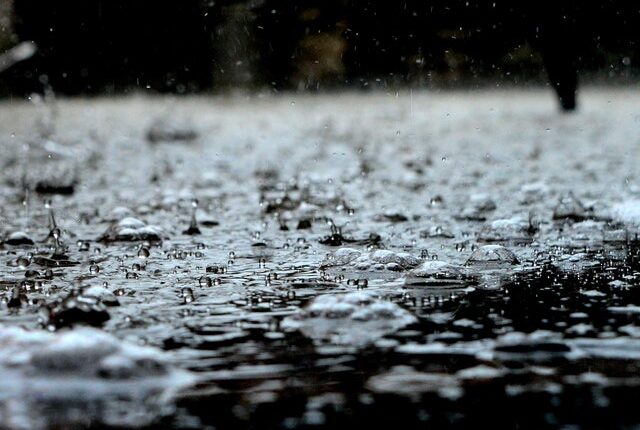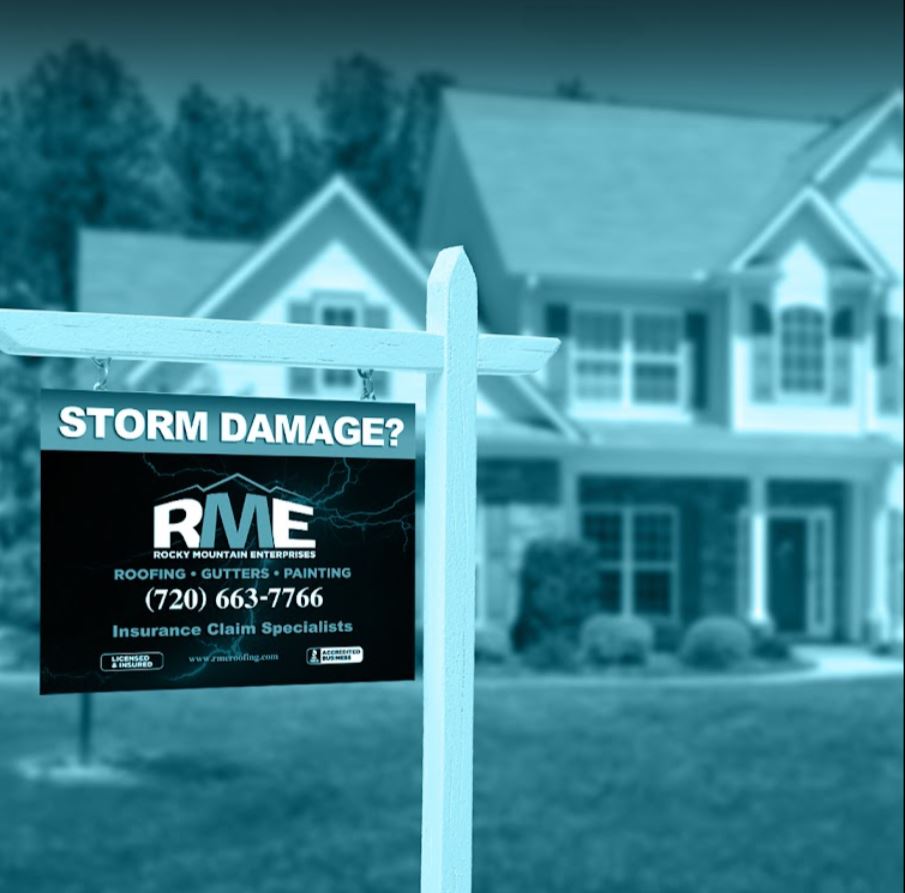Here in Colorado, especially with the spring season in full swing, storm damage to your roof is a distinct possibility. It’s wise to take care of storm damage to your roof as soon as possible to avoid more severe issues. Roofing damage gets worse over time as it’s exposed to various weather conditions, so Colorado roof repairs are important for the longevity of your roof.
If your roof becomes damaged in a storm, you may be left wondering what to do. Here, we’ve outlined how to deal with storm damage to your Colorado roof, as well as the main types of roof storm damage to look out for. By taking care of the damage ASAP after it occurs, you can work to protect the condition of your roofing system.
Types of Storm Damage
There are multiple types of storm damage that can happen here in Colorado. These include:
Water Damage
With any type of precipitation, your roof is at risk of water damage. When it’s pouring rain, the rain may cause the protective granules on the surface of asphalt shingles to fall off. The granules protect your roof against the sun’s UV rays, helping to manage the temperature of your home during the summer months. Additionally, when the outer granules have worn away, your roof shingles are more susceptible to further damage.
If your roof is damaged or on the older side, moisture may seep into its weak points. As the water reaches the deeper layers of the roof, it can speed up the process of deterioration and may cause the wood elements to rot. If the water seeps all the way through your roof, you’ll likely have a leak on your hands. Roof leaks can occur after severe storms, especially if your roof is nearing the end of its lifespan. A leak may cause water damage not only to your roof, but also to the rooms in your home, which makes it important to schedule prompt Colorado roof repairs.
Hail Damage
Hailstorms are common here in Colorado. We experience more severe hailstorms in this state than most other regions in the U.S. Hailstones, especially when they’re large and/or traveling at high speeds, can dent, crack, or puncture your roof. Hailstones also tend to damage the protective granules on asphalt shingle roofing systems. This is why homeowners often notice asphalt granules in the gutter downspouts after a storm.
Roof hail repairs are crucial after a severe hailstorm if significant damage has occurred. Leaving hail damage alone will diminish the strength of your roofing system, making it more likely for damage to strike in the future.
Wind Damage
Many severe storms here in Colorado are accompanied by high winds. High winds can get under the edges of roof shingles and lift them up. This may break the shingles and/or rip them off of your roof.
Wind during a storm can also lead to broken branches or twigs on nearby trees. When the branches break, they may fall onto your roof and cause damage. To avoid this problem, make sure to keep the trees on your property trimmed back from the surface of the roof.
Wind damage is more likely to affect your roof if there’s existing damage, such as weak sealant. You can largely avoid this issue by scheduling regular roof inspections. The inspector will be able to identify any loose shingles and advise you on repair solutions.
How To Deal With Roof Storm Damage
After a big storm in Colorado, there are a few steps that you can take to address damage and reduce your risk of future roofing problems:
- Schedule an inspection with your Colorado roofing company. During this inspection, a roof inspector will let you know whether any storm damage has occurred.
- Take note of any damage that you can identify safely before the storm, such as broken shingles around your yard or asphalt granules in the downspouts.
- Schedule the needed Colorado roof repairs to restore the condition of your roof.
- Contact your homeowners insurance company to file a claim for any covered damage.
Contact RME today to schedule your roof inspection or Colorado roof repairs after a storm.


